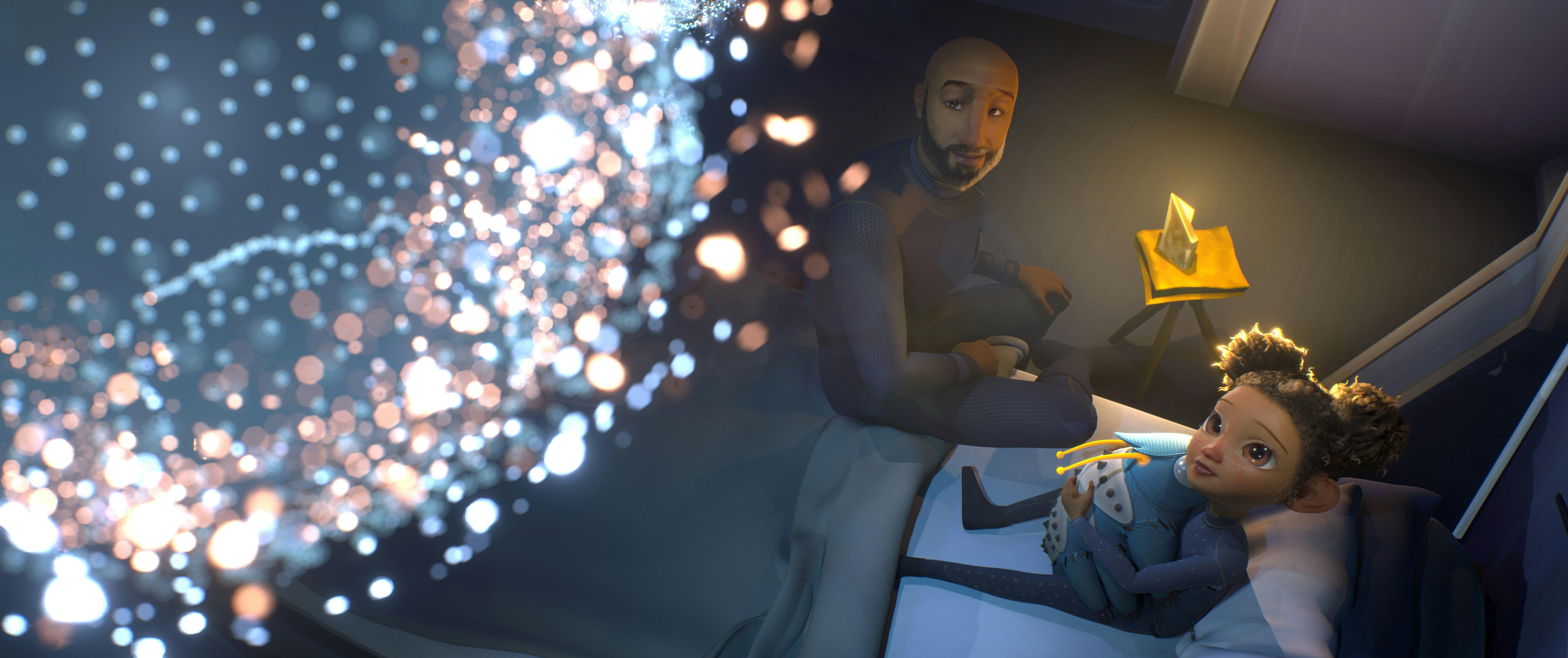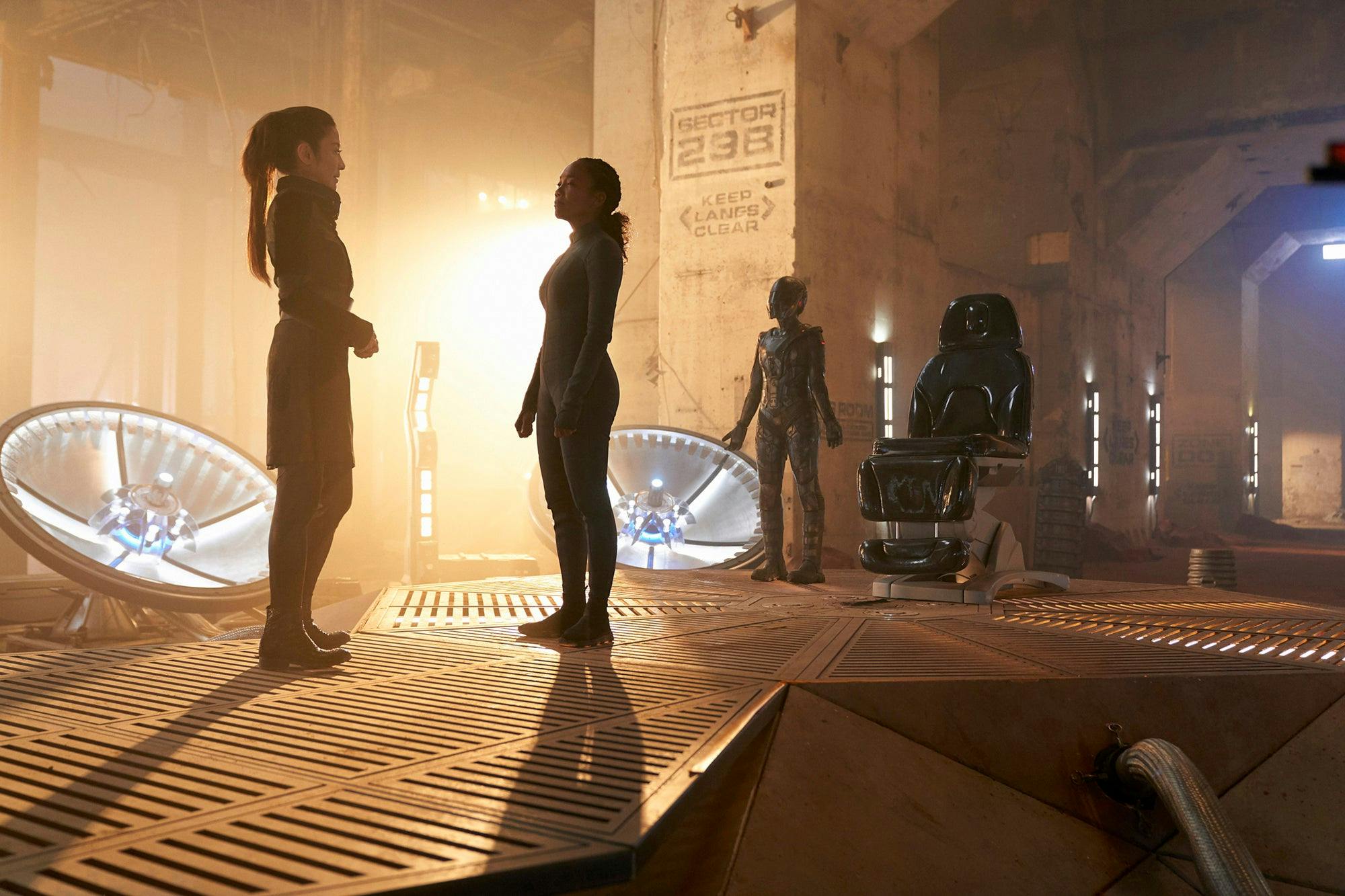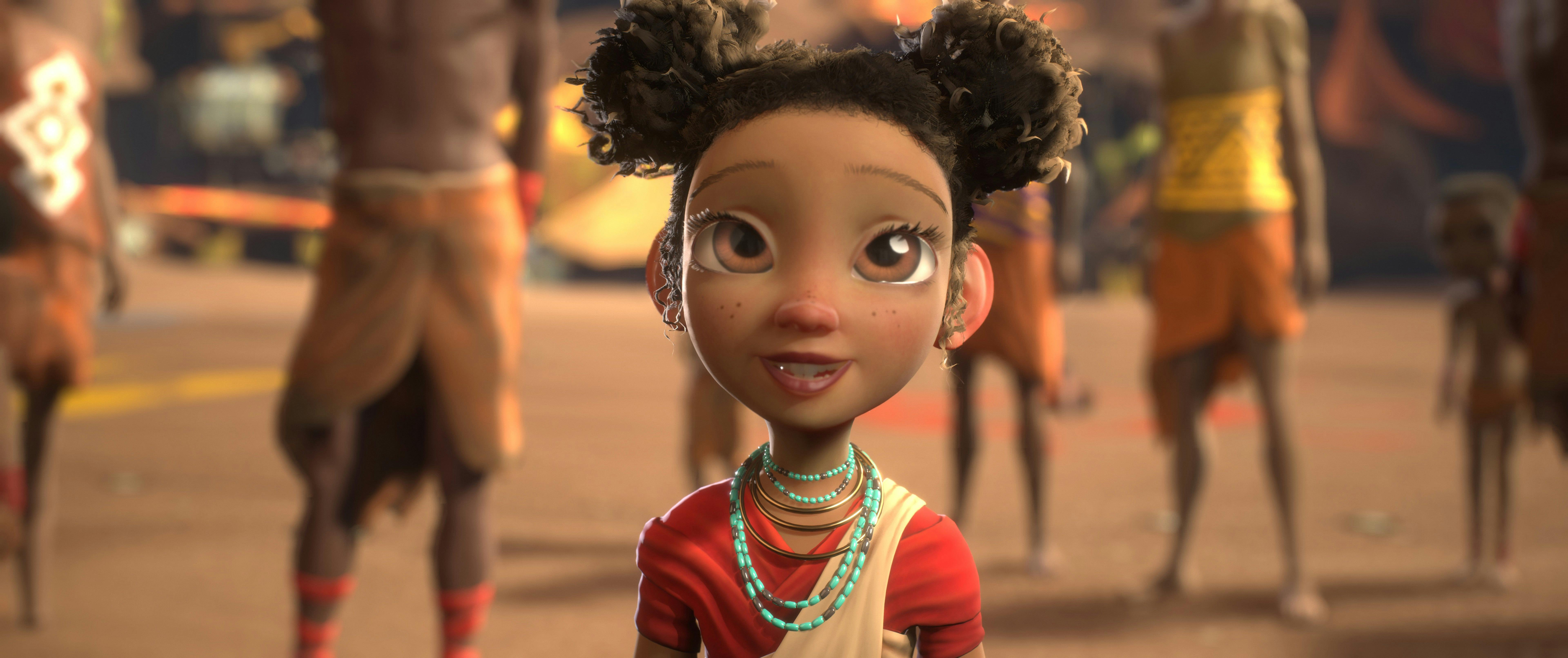
StarTrek.com
Welcome to Warp Five, StarTrek.com's five question post-mortem with your favorite featured talent from the latest Star Trek episodes.
Writer Brandon Schultz helped make Star Trek history by bringing the Red Angel to life, and spurring on a series of events that threw the crew of the U.S.S. Discovery over 900 years into the future — the furthest into the future any Trek series has gone. Now, Schultz is back, beaming into the Star Trek universe with Short Treks episode “The Girl Who Made The Stars.” The new animated short focuses on a young Michael Burnham and her father, and is a heartwarming tribute to father-daughter relationships as well as a showcase of the importance of Burnham’s family.
Schultz worked in many fields of entertainment before coming aboard Star Trek: Discovery. He started an independent animation studio after college, producing and writing ads, television openings, and animated music videos. One of his original projects, Blokhedz, even became a graphic novel through Image Comics. But it was starting as a writer’s assistant on Discovery that fully cemented him within the Star Trek universe.
StarTrek.com sat down with Schultz for a quick chat to talk his first memories of Trek, his career, and where he drew the inspiration for this story.
Episode Preview | Star Trek: Short Treks - The Girl Who Made the Stars
StarTrek.com: Before we get into “The Girl Who Made The Stars,” can you tell us about your own first contact with Star Trek? What is your first memory of the show or the moment you became a fan?
Brandon Schultz: Well, one of my earliest memories of watching TV is sneaking out of my bedroom during nap time, going into the living room where we had a TV with five stations, and clicking on Star Trek. My grandmother would not let me watch [a lot]; she'd put me back to sleep if it were other things. But if it was Star Trek and Lieutenant Uhura was on the screen, she’d say, “That's okay, you can watch that.” It's literally one of my formative memories, and a warm memory around my grandmother and Nichelle Nichols, and how much [Nichelle’s presence on screen] meant at the time as a child of the ‘70s and ‘80s.
That was First Contact, but The Next Generation was my Star Trek as a teenager and young person as well.
You have a pretty interesting career trajectory, starting with appearing in some movies in the 80s (like the classic Cooley High), getting into production, and then coming onto Discovery as a writer’s assistant. Can you talk a bit about your career arc that brought you to Trek?
BS: Well, growing up I had a family of artists and filmmakers. In a family of artists and filmmakers, it always was a natural thing [that I would get into it too]. My first job was being a production assistant, and I worked on Broadway and many capacities all over entertainment. But after college I ended up starting an animation studio with some friends of mine. That was around the time where animation was becoming a tool for the internet [with] flash animation. I wrote and produced everything from ad spots, to TV show opens and music, animated music videos... those kind of things. One of our original properties became a comic book and a graphic novel with Image Comics, called Blokhedz, so animation was actually my background!
I loved that, but I really wanted to segue back into live action filmmaking, so Discovery kind of gave me that opportunity and I started at Discovery as a writer's assistant. I had to take a step in a different direction from writing and producing to being an assistant, but it was kind of a gift because I learned episodic TV writing from the ground up and from a lot of really talented people.

Steve Wilkie/CBS ©2018 CBS Interactive
In season two, I was able to co-write a freelance episode with the amazing Alan McElroy who is a mentor of mine now, and we brought the Red Angel into the Discovery lexicon and introduced Burnham's mom. Coming from [an assistant] to being able to pitch and be part of stories that are telling the Burnham legacy has been amazing. For season three I was promoted to be a staff writer and co-write another episode so that I'm really, really excited for people to see.
Getting to write a Short Trek was great because it just came out of a conversation, a pitch that I had for Michael based off of the opening line of season one. Alex [Kurtzman] and Jenny [Lumet] wrote this great nugget of dialogue that talked about a creation story, and I thought that was so interesting. Towards the latter part of the season, I had pitches for it, [but] there was a lot going on and we weren't able to work-in any of those pitches to the season. I think it did spark something because when Alex decided we were going to do animated Short Treks, he said [that he them] to be based off those pitches and the story that was hinted at in episode one of season two.
The script for “The Girl Who Made the Stars” paints Michael Burnham as a super precocious child, and her voice actress, Kyrie McAlpin, brings that to life fabulously. When you were writing the script did you already have an idea of who would be voicing your two leads, Michael and her father, and did that shape the way you wrote their characters?
BS: Actually, the casting came after the script. We had an idea [to bring back] Kenric [Green] since in episode 11 of season two — an episode that I co-wrote — Kenric played the father of Michael Burnham [Michael Burnham Sr.] in a flashback. So one of the thoughts was how fun would it be for Kenric to play the father of tiny Burnham.
Kyrie McAlpin, who played tiny Burnham, came later and we were all blown away in the vocal booth when she did the voice record, because she just brought an energy and an awesomeness to it. In talking with Alex, we wanted the energy to be fun and playful and Kyrie really brought that to light.
Throwback to the voice record for “Girl Who Made the Stars”. Thanks to @michelleparadis for letting me play hookey from @StarTrekRoom to record with this amazing team behind the short. pic.twitter.com/fUxlq5K6cC
— Brandon Schultz (@bschultzwriting) December 12, 2019
[Having daughters of my own] was definitely one of my inspirations, and our bedtime rituals, like the one you see between Michael and her father, is my most treasured memories of fatherhood. Both my daughters are a bit older now, but I wrote this remembering those early years. As I talked about it with our director Olatunde [Osunsanmi], he mentioned after reading the first draft that his daughter was going through that fear of the dark [too]. We all as parents can relate to that, I think, and it was especially present for him. I just thought that was an awesome combination. Someone who has nostalgia for it and somebody who has gone through it at the same time.
The short itself came from a pitch earlier in the season, but the story that it tells, the creation myth— was there a specific myth or series of stories that inspired the tale?
BS: When I read the script for “Brother” for season two, I just loved it and was really struck by the reference. I started Googling things and found different nuggets of information from different myths that all based around ancient people. The San people of Botswana are the ones that are referenced. Those people are called different names; in The Gods Must Be Crazy, a 1980s movie, they were called Bushman.

StarTrek.com
Their DNA spans the world; they also had this great kind of mythology that is actually a female creation mythology. In writing the short, I took any information or any research as background, but I really just tried to reference what “Brother” did and keep the mythology within a Star Trek world, a Star Trek reference. It's not anthropologically exacting, but we wanted all that to inform this idea of this oral tradition, which Michael Burnham Sr. is part of passing onto his daughter.
You’re back in the writer’s room for season three of Star Trek: Discovery. What’s been the most exciting part of working on the season so far, and what should fans be looking forward to?
BS: In terms of Discovery season three, I’m super excited for this new future and the new characters that you'll be able to meet, and the creation of — or the storytelling around — not only things from canon but new Star Trek aliens.
It's a huge gift to be able to write and start off with the slug “EXTERIOR — SPACE”. Because, when you're writing with space [as a setting], there is no night and day. It's just a real gift towards the imagination.
Anyone who works in TV and film has a special opportunity to engage in conversations around culture and things that are relevant and meaningful. In Star Trek, we're able to really do that along with having the freedom to speak in metaphor and imagination where it just feels kind of safe and warm. It's an escape from the day to day, and that is really rewarding.
Star Trek: Short Treks stream exclusively in the United States on Paramount+ and in Canada on Bell Media's CTV Sci-Fi Channel and OTT service Crave.

